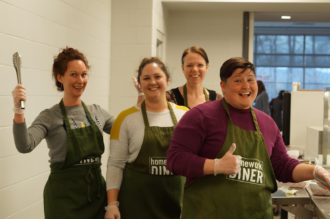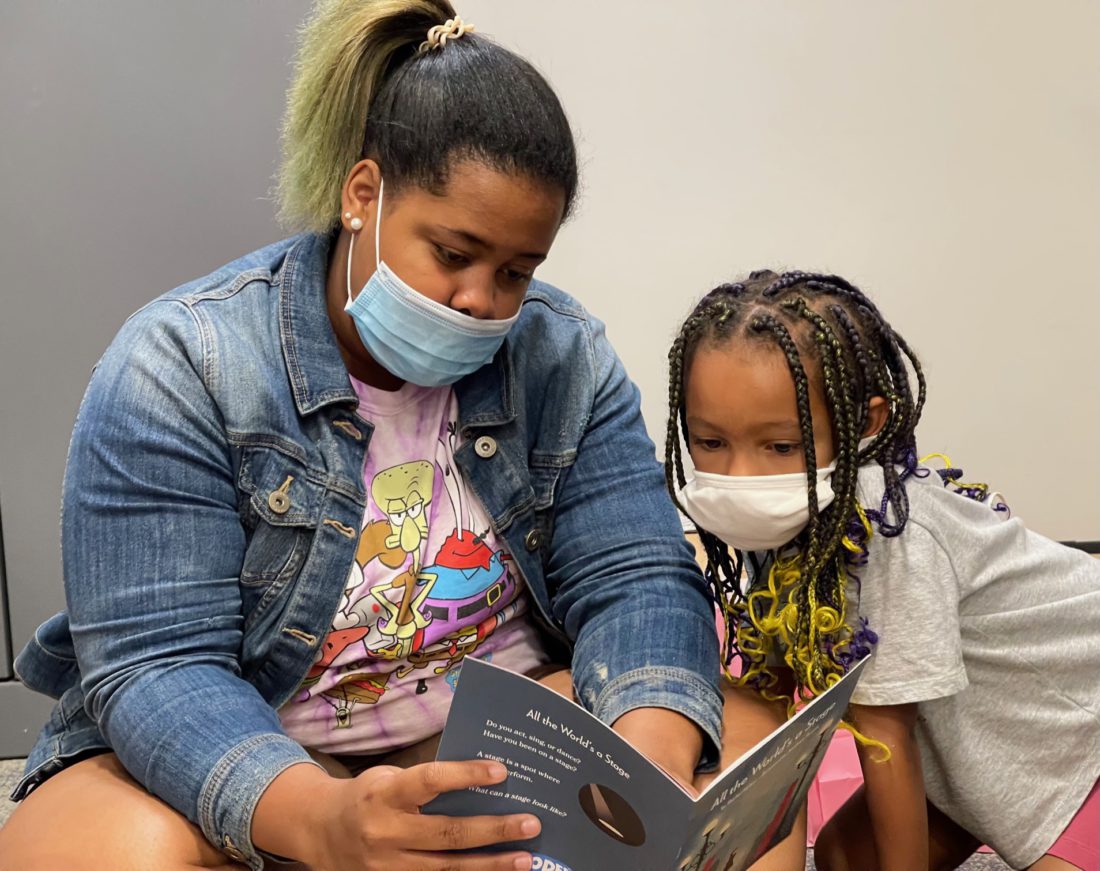Most of us have seen the statistics by now. The Asheville City Schools’ achievement gap — the disparity in academic test scores between white and Black students — is well documented. In 2015, the district posted the largest difference in scores among North Carolina’s 115 school districts, and the fifth-largest such differential in the United States. The persistent discrepancy, also called an “opportunity gap” to acknowledge the impact of socioeconomic factors such as income, ethnicity and ZIP code on academic outcomes, has actually increased in recent years despite the district’s efforts to address it.
To make matters worse, some educational experts maintain that COVID-19 school shutdowns and the subsequent transition to online learning have exacerbated the problem, as low-income students have less access to computers, high-speed internet and other home-based support and resources. But while the statistics are bleak and the systemic obstacles are many, local individuals and community-based organizations are pursuing their own approaches to tackling these long-standing inequities.
A new narrative
“We wanted to be solution-oriented and meet people where they are. We wanted to support students, families and the community, and to do it without rhetoric but with on-the-ground work,” says Tiece Ruffin, interim director of Africana studies and professor of education and Africana studies at UNC Asheville. Ruffin is one of three Black faculty at the school who have partnered with student interns and community groups to distribute nearly 300 STEM Fun-Packs this summer. Each one contains grade-level-appropriate books and activities that feature Black protagonists and highlight their contributions in science, technology, engineering and math. In addition, there are hands-on projects designed to encourage family participation. Funded by a $25,000 grant from the Dogwood Health Trust, the initiative also received assistance from another local entity, the Colorful Pages Coalition.

“It’s about collective impact to support the transformative work that’s already in motion,” Ruffin explains, speaking of existing efforts by many groups to serve Black youths in the community. Specifically designed to address both the overall opportunity gap and the “summer slide” (the tendency for students to regress academically during nonschool months), the packs are also culturally relevant, says Ruffin.
“This was about portraying Black humanity in a positive light. We didn’t have any books about slavery or trauma. It’s all about being culturally affirming. It’s something to be proud of to see Black joy, genius and excellence.”
For white youths, seeing their culture represented in the books they read may be commonplace, but for nonwhite students, it can be a transformative experience. “I am excited that students were able to get packets specific to their age and culture,” says CiCi Weston, executive director of the Christine W. Avery Learning Center, one of the programs that received the Fun-Packs. “It took things to a greater level, having the books display professionals who look like our children. The excitement each child had, along with their parents, was great to see.
“One child said, ‘Look, Mom, this book has my name on it.’ The book was about a young Black girl named Jada. She was amazed to not only see a character who looked like her but who also had her name.”
A whole-community approach
Ruffin cites the United Way of Asheville and Buncombe County as another ally in the work to address the opportunity gap. Among other things, members of the nonprofit’s United for Youth Network collaborated this summer to help students and families prepare for a new school year. Those programs focused on reading, STEM, social-emotional confidence and cultural and community awareness.
“It isn’t hard to see how academic success is too often undermined by inequities in issues such as hunger, homelessness, violence, poor health and other social problems,” says Laura Elliot, senior director of community schools and network development at United Way. “This means that the opportunity gaps aren’t just a school-based problem: They’re a community responsibility.”
United for Youth is part of a broader strategy by United Way since 2013 to treat schools as central hubs for connecting students and families with programs that target a range of socioeconomic issues. Those efforts, says Elliot, are gaining traction.
“From January 2018 to January 2020, students at Asheville, Enka, Erwin and Owen middle schools showed improvements in the areas of attendance, behavior and core course grades,” she reports. Among all students who were on track to graduate, there was a 9.5% increase in all three of those areas, and a 15.1% increase among on-track Black, Hispanic and multiracial students, Elliot explains.

United for Youth’s efforts this summer were extensions of programs put in place during the COVID-19 era. The pandemic, says Elliot, has had a profound impact on long-standing opportunity gaps in education as well as health, housing and other areas. United Way’s network of schools and over 50 community partners is the key to meeting those challenges, she believes. “Resources will come and go, but the foundation of a strong partnership will carry us through.”
When schools weren’t meeting in person, weekly virtual meetings facilitated by United Way staff helped network partners develop school COVID response plans, organizing volunteers to distribute family food boxes and shifting the existing “Homework Diner” after-school tutoring and family engagement events to a community-based learning pod model. During this period, those efforts served 278 students across 16 sites.
“We had a working system for communication, trust and truth-telling,” says Elliot. When the pandemic hit, she continues, “This network was able to reassemble quickly in a virtual environment to coordinate accurate information and resources for families.” The same approach is now being taken with reentry plans.
Teamwork
Meanwhile, a partnership between two local nonprofits, Literacy Together and Youth Transformed for Life, provided tutoring for 50 campers this summer, most of them students of color who were struggling with reading and had fallen behind their peers during the pandemic. Literacy Together, a long-running group formerly known as The Literacy Council of Buncombe County, signed on to offer three two-hour tutoring blocks each week for first through fifth graders at a camp run by Youth Transformed for Life.
At the same time, Literacy Together saw an additional opportunity to provide job training and professional development for older students of color: rising high school juniors and seniors as well as community college enrollees.
“We are well aware that children of color learn and respond better when taught by people that look like them and share a cultural background,” says Cindy Threlkeld, the nonprofit’s executive director. “We designed a paid internship and trained them on how to tutor kids who are struggling to read — the same training we provide our adult literacy tutors.” The 14 participants, mostly Blacks and Latinos, were also trained in lesson planning, resume writing and financial literacy.
“It’s a real win-win,” says Threlkeld. “Interns are getting paid professional experience, and students are addressing the summer slide.”
Initial data shows that 70% of the campers in the program either improved in at least one literacy skill area or held steady, she says. The lack of regression is significant, as a 1996 review of the literature found that, on average, achievement scores for all students declined by one month’s worth of learning by summer’s end.
But that effort, stresses Threlkeld, is only one piece of what’s needed to address the broader opportunity gap. “It’s really important: Schools can’t do this by themselves. It takes the community getting involved, as it’s a community issue.”




Before you comment
The comments section is here to provide a platform for civil dialogue on the issues we face together as a local community. Xpress is committed to offering this platform for all voices, but when the tone of the discussion gets nasty or strays off topic, we believe many people choose not to participate. Xpress editors are determined to moderate comments to ensure a constructive interchange is maintained. All comments judged not to be in keeping with the spirit of civil discourse will be removed and repeat violators will be banned. See here for our terms of service. Thank you for being part of this effort to promote respectful discussion.